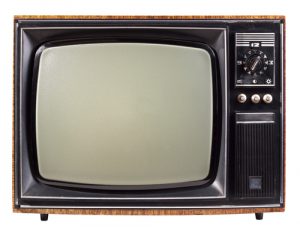You might have heard that some air conditioning units are becoming obsolete, but do you know why? The answer is quite simple. Synthetic refrigerants like Freon that are used to cool the machines are not as efficient as newer natural refrigerants and many of them will soon be banned on environmental sustainability grounds.
But what’s good for the environment, in this case, also makes commercial sense. This is because natural refrigerants enable air conditioner and refrigeration units to operate more efficiently and therefore more cost-effectively. How? This comes down to how hard your machinery needs to work under varying operating conditions.
Natural refrigerants perform significantly better than synthetic refrigerants in hot conditions. Critical temperature is defined as the maximum temperature where the refrigerant will change from a liquid to a vapour. In order to change it back to a liquid, it needs to be cooled, which requires the machine to work harder. This means more energy consumption and more wear and tear.
Synthetic refrigerants such as R410 A and R32 & R22 have a low critical temperature of around 70℃. In extreme weather of 55 ℃ on a rooftop, you will get really high discharge pressure and a lot of power will be needed to pump the refrigerant or to cool it.
Natural refrigerants like R717 (ammonia) and R744 (carbon dioxide), and non-toxic hydrocarbon blends such as Engas’s M50 & 60, on the other hand, do not go into a state change until they hit 130℃. These are much more efficient and really hot days are no problem at all.
So here are our Top 5 reasons why your business should be considering natural refrigerants for air-conditioning and refrigeration units.
#1: Natural refrigerants will reduce the cost of heating & cooling your business by up to 38%

Hydrocarbon refrigerant blends are generally inexpensive, especially when compared to their synthetic counterparts. Add that to the fact that they’re also more energy-efficient so that even if there are investment costs initially, these can be offset later on and these can result in cutting costs by between 17%-38% on energy consumption, giving your business more savings opportunities.
#2: Hydrocarbon-based refrigerants will reduce the cost of repairs and maintenance on your air-con and refrigeration units
Switching to non-synthetic refrigerants will improve your machinery’s operating efficiency, resulting in reduced wear and tear on your HVAC&R units. This, in turn, will result in fewer breakdowns and reduced repair and maintenance costs.
#3: Natural refrigerants extend the life of your air-con and refrigeration units
Because these environmentally-friendly refrigerants work more efficiently, your equipment doesn’t have to work so hard to perform properly, it’s more likely to last for a longer time compared to air conditioners and refrigerators with synthetic refrigerants.
#4: Natural refrigerants are better for the environment

Synthetic refrigerants pose a threat to the environment because of their high Ozone depletion potential and global warming potential.
The main ecological advantage of natural refrigerants for air conditioners and refrigerators are that they are naturally-occurring so producing these substances isn’t energy-intensive, they’re more sustainable, they have zero Ozone depletion potential and negligible global warming potential.
While it is noted that some natural refrigerants like CO2 can be hazardous to humans, people have managed to use these safely for various functions in different industries.
#5: Synthetic refrigerants are being phased out. The need to upgrade to natural refrigerants is inevitable
Synthetic refrigerants are becoming obsolete because of their harmful effects on the Ozone layer so, the production and use of HCFCs like R22 have been banned following the Montreal Protocol. In compliance, Australia will begin to phase out synthetic refrigerants next year.
This means that people who own older HVAC&R units that use R22 will have to use recycled R22 when they encounter a leak, and it’s likely going to cost a fortune to re-gas. But the most probable scenario is that the system will need to be replaced. In any case, as mentioned earlier, because hydrocarbons are much gentler on the machinery, they’re going to last longer.
Would you buy an obsolete black & White TV?

No, you obviously wouldn’t. So why have an obsolete air conditioning unit?
Would you be able to get parts and refrigerant and what would it cost you?
Do you want to keep paying for high electric bills because your air conditioner is inefficient?
The answers to the questions are an obvious no, so perhaps it is time to check your units and get new ones that are more efficient, easier on the pocket and cleaner for the environment.
Want to keep up to date with all the latest energy news?
Want to save more on your energy bill? Get in touch with our Energy Management Consultants and we’ll see how we can reduce your energy costs – you can check out our case studies to see the different ways we’ve help companies in Australia lower their energy bills.
You can visit our blog for articles related to solar power, air conditioner energy efficiency tips, updates on the National Energy Market, business recovery tips, and more.
Call us at 1300 852 770 or drop us an e-mail at hello@leadingedgeenergy.com.au today!














